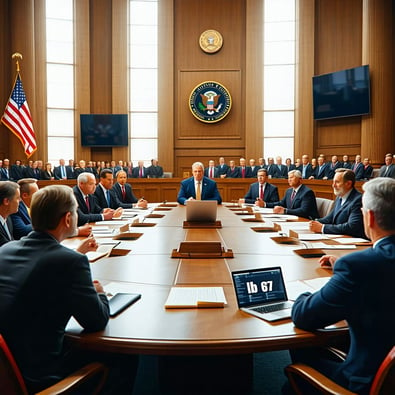The Nebraska Medical Cannabis Commission voted Tuesday to advance stricter regulations than those adopted earlier this summer, raising alarms among advocates. All five commissioners amended emergency rules that have been in place since June 29 but were set to expire at the end of September. If approved by Gov. Jim Pillen — who signed the initial rules in June — the new measures would still allow the state to license registered medical cannabis establishments by the Oct. 1 voter-mandated deadline.
These revised rules mark the most significant changes yet to the state’s Nebraska Medical Cannabis program. They introduce detailed testing and security requirements and create a “Recommending Health Care Practitioner Directory” for in-state physicians. Practitioners would need 10 hours of continuing education on medical cannabis initially and two hours annually thereafter. Physicians would also be required to prescribe specific dosages and potency levels, limiting patients or caregivers to one purchase of the recommended product every 30 days.
Under the new guidelines, patients could buy up to 5 ounces of medical cannabis in a 30-day period, but no more than 5 grams of delta-9 THC from the same dispensary within 90 days. The revised rules also cap the number of dispensaries at 12 statewide — one per judicial district — and ban smoking, vaping and edible products, a shift from earlier regulations that had allowed non-sugarcoated gelatinous cubes.
Advocates for Nebraska Medical Cannabis say the changes ignore voter intent. About 71% of Nebraskans approved legalization at the ballot box in 2024, and 67% voted to create the commission. Crista Eggers of Nebraskans for Medical Marijuana called the new limits on cultivator and manufacturer licenses a betrayal of public trust. Limiting cultivators to just four, she warned, risks breaking the supply chain before it starts.
Public testimony also revealed frustration over confusion surrounding the commission’s competing draft regulations. Many expected a higher dispensary cap or permission for vaping — changes that had appeared in one version of the rules but were omitted in the final vote.
Despite legal threats and limited funding, the Nebraska Medical Cannabis Commission is moving forward. Licensing applications will be accepted Sept. 4–23, with the next public meeting scheduled for Sept. 30. Advocates argue that voters have spoken clearly and that the commission should implement a program that expands access rather than restricts it.
For thousands of Nebraskans seeking relief through Nebraska Medical Cannabis, the coming weeks will determine whether the state fulfills the promise of its historic ballot measure or undermines it with new barriers.





.jpeg?width=550&height=395&name=AdobeStock_243589890%20(1).jpeg)